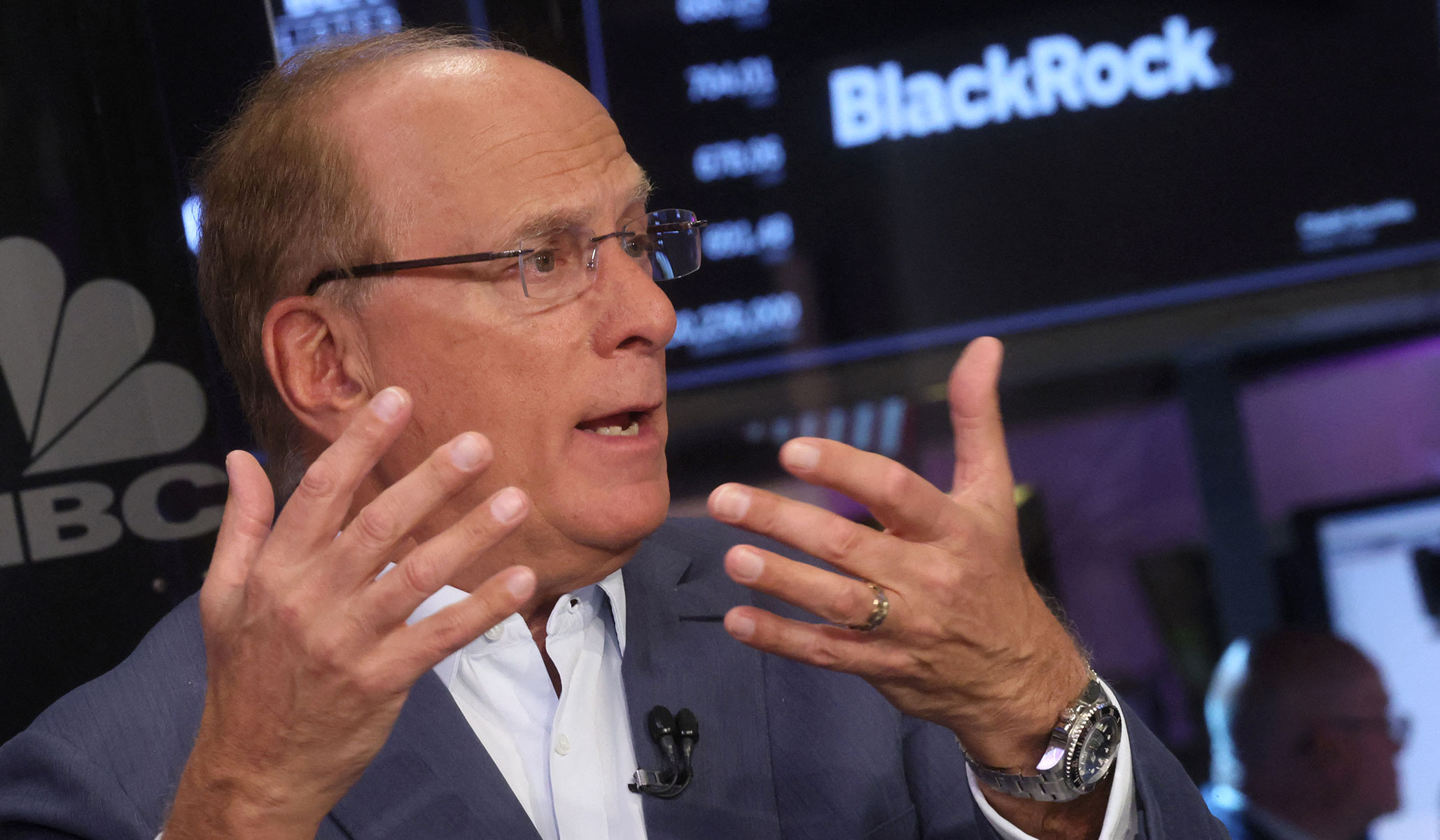Anti-ESG Movement Racks Up Wins in Eleven States as Media Insist Effort Is ‘Backfiring’
 By RYAN MILLS
By RYAN MILLS
Despite reports that the effort is “backfiring” and has “few big wins,” at least eleven states have passed legislation this year to combat public-investment strategies that prioritize left-wing social and environmental goals over providing the best financial return for taxpayers.
Supporters of the conservative movement to bar public-asset managers from taking into account so-called environmental, social, and corporate governance factors, or ESG, say they’ve made great strides in the last two years building awareness of ESG and passing laws against it.
“We’ve come in the last year and a half from nothing to having a quarter of the states passing stuff and having half of the states engaging,” said Derek Kreifels, CEO of the State Financial Officers Foundation, a free-market non-profit that promotes fiscally responsible public policy. “To go from nothing to this in the last 18 months or so has been phenomenal.”
The ESG movement looks beyond just financial returns on investments, and grades companies on things such as their ethics, board diversity, and political, environmental, and sustainability efforts. Many conservatives see ESG as an anti-democratic movement to impose a “woke” ideological agenda on society, even in states that don’t approve of the left-wing values.
Many of the world’s largest financial firms, including BlackRock, Wells Fargo, Vanguard, and JPMorgan Chase, utilize ESG in their investment decisions.
Mainstream-news outlets have often portrayed the anti-ESG movement as floundering and failing. In February, the Washington Post reported that the “conservative battle against ‘woke’ banks is backfiring.” Bloomberg Law reported in April that the anti-ESG movement has gotten a lot of hype by has “few big wins” in statehouses.
But Catherine Gunsalus, director of state advocacy for Heritage Action, said the mainstream-media narrative that the anti-ESG movement is falling flat “couldn’t be further from the truth.”
“I think the math shows that,” she said. “I think they’re nervous on the other side of this that this movement to push back on ESG is actually being successful.”
The pushback against ESG only started a couple of years ago. In 2021, Texas lawmakers passed a law that bars the state from doing business with financial companies that favor renewable-energy firms over fossil fuels for environmental rather than financial reasons. “This bill sent a strong message to both Washington and Wall Street that if you boycott Texas energy, then Texas will boycott you,” Texas representative Phil King said during debate over Senate Bill 13.
Last year, West Virginia, Kentucky, Oklahoma, Tennessee, and Idaho followed suit.
“We’re not going to pay for our own destruction,” Riley Moore, the state treasurer from West Virginia, said of his state’s anti-ESG legislation, which takes aim at financial firms that “have weaponized our tax dollars against the very people and industry that have generated them to begin with. That is why we’re pushing back against this ESG movement.”
In January 2022, Moore announced that the state would no longer use BlackRock for banking transactions involving West Virginia’s roughly $8 billion in operating funds. The move came after the firm urged companies to embrace “net zero” climate investment strategies that the state deemed harmful to its fossil fuel industries.
This year, more than two dozen states introduced anti-ESG-style bills, and so far at least eleven – Arkansas, Florida, Idaho, Indiana, Kansas, Kentucky, Montana, North Dakota, Tennessee, Utah, and West Virginia – have passed and enacted some version. The various bills address the ESG issue from different angles: Many require that investment decisions involving taxpayer money be based solely on prospective financial returns, while others address government contracting, local bonds, and bank boycotts and discrimination.
In Arkansas, lawmakers passed a series of bills in March that bar the use of ESG in investment and contracting decisions. The state will also establish an ESG-oversight committee to create a list of financial-service providers that discriminate against energy or firearms firms.
In April, Montana governor Greg Gianforte signed two bills that bar discrimination against the firearms industry and that prohibit the consideration of nonpecuniary factors for public investments. “Activist, woke capitalism through ESG investing is trending on Wall Street. It won’t fly in Montana,” Gianforte said as he signed the bills at a local gun manufacturer.
That same month, Kansas’ Democratic governor, Laura Kelly, allowed a bill that bars the consideration of ESG criteria in government contracts and investments to become law without her signature.
Kentucky’s Democratic governor, Andy Beshear, signed a law in March that bars asset managers handling the state’s retirement system from considering ESG factors. Kentucky state treasurer Allison Ball called it the “strongest anti-ESG legislation in the nation.”
One of the anti-ESG laws passed in Utah establishes that companies that work together to deny services to certain industries could run afoul of the state’s antitrust law.
Florida’s anti-ESG bill, which Governor Ron DeSantis signed into law in early May, was one of the most extensive such bills in the country. It prohibits the use of ESG criteria in investment decisions, government contracts, and local bonds, prohibits banks that engage in corporate activism from holding public deposits, and bars financial firms from discriminating against customers based on their religious, political, or social beliefs.
Reuters called Florida’s law “one of the furthest-reaching efforts yet by U.S. Republicans against sustainable investing efforts.” Jeremy Redfern, a DeSantis spokesman, told National Review in an email that “Florida’s approach ensures that fund managers invest state funds in a manner that prioritizes the highest return on investment rather than a woke ideological agenda.”
DeSantis is also leading an alliance of 18 states fighting ESG efforts promoted by the Biden administration. “We will not stand idly by as the stability of our country’s economy is threatened by woke executives who put their political agenda ahead of their clients’ finances,” DeSantis said in a prepared statement announcing the alliance.
Critics of anti-ESG legislation allege that the movement was ginned up by the fossil-fuel industry to protect its interests by alleging that it is the victim of left-wing discrimination.
Gunsalus, with Heritage Action, said the anti-ESG movement is not about propping up specific industries, but is instead about protecting the economic interests of states and their citizens.
“These bills are about bringing things back to neutral, being focused on financial factors, things we should already be doing,” she said. “It’s not about picking winners and losers.”
ESG supporters paint it as simply an investment strategy that considers additional information to assess potential risk-and-return prospects. Earlier this month, Washington Post columnist Dana Milbank suggested that Republicans promoting anti-ESG legislation are akin to “Soviet economic planners” who are “now telling investors which businesses they can and can’t invest in – and which investment criteria they will be permitted to consider.”
Some state analyses and university studies have suggested that anti-ESG laws could end up costing states tens of millions, and possibly billions of dollars, due to reduced returns, the early sale of assets, and additional interest payments. Gunsalus is skeptical of those reports.
“These bills are about making sure that the state has the highest financial return. Done. That’s it,” she said. “All these models do is simply reinforce that and say you must be managing our funds according to financial factors and highest returns only. Anything else is a breach of that fiduciary duty.”
Anti-ESG legislation hasn’t passed everywhere it’s been proposed. Democrats have defeated most anti-ESG bills in blue states, and in some cases have passed laws promoting the consideration of ESG factors in their investment decisions. Some conservative state legislatures, including in Mississippi and Wyoming, rejected anti-ESG bills this year.
Sam Masoudi, the chief investment officer of Wyoming’s retirement system, expressed concerns that ESG was so broadly and subjectively defined in proposed legislation that if it passed the state might not be allowed to invest in almost any Fortune 500 companies.
“Earlier today, I was looking at the webpage of a very large coal company, and they have a page about their climate focus and how they are going to reduce emissions,” Masoudi said during a hearing, adding that “theoretically we wouldn’t be able to invest in the coal company.”
While North Dakota lawmakers did pass a law this year that prohibits the use of ESG factors in state investment decisions, they voted overwhelmingly – 90-3 in the House – against a bill that would have created a list of financial firms that engage in a “boycott of energy companies” that the state couldn’t do business with. Lawmakers had concerns that the wording of the legislation was too vague, and that it didn’t offer due process to targeted firms.
Gunsalus noted that in many cases, states are proposing various bills that take different approaches to the ESG issue. “Not all bills are created equal,” she said.
Kreifels said he’s not concerned that some anti-ESG legislation failed this year, even in red states, and that in some cases the language had to be modified to pass.
“The way I look at it, frankly, it’s the top of the first and we’ve got eight innings to go.”
Even though it’s a difficult issue for many people to understand, Kerifels said he’s confident the anti-ESG side is winning the fight.
“I’m waiting to hear what the left decides to rename ESG, because we’re tarnishing the brand,” he said. “My anticipation is they’re going to end up changing what they call it soon.”
Original Here

|
⭐⭐⭐⭐⭐
